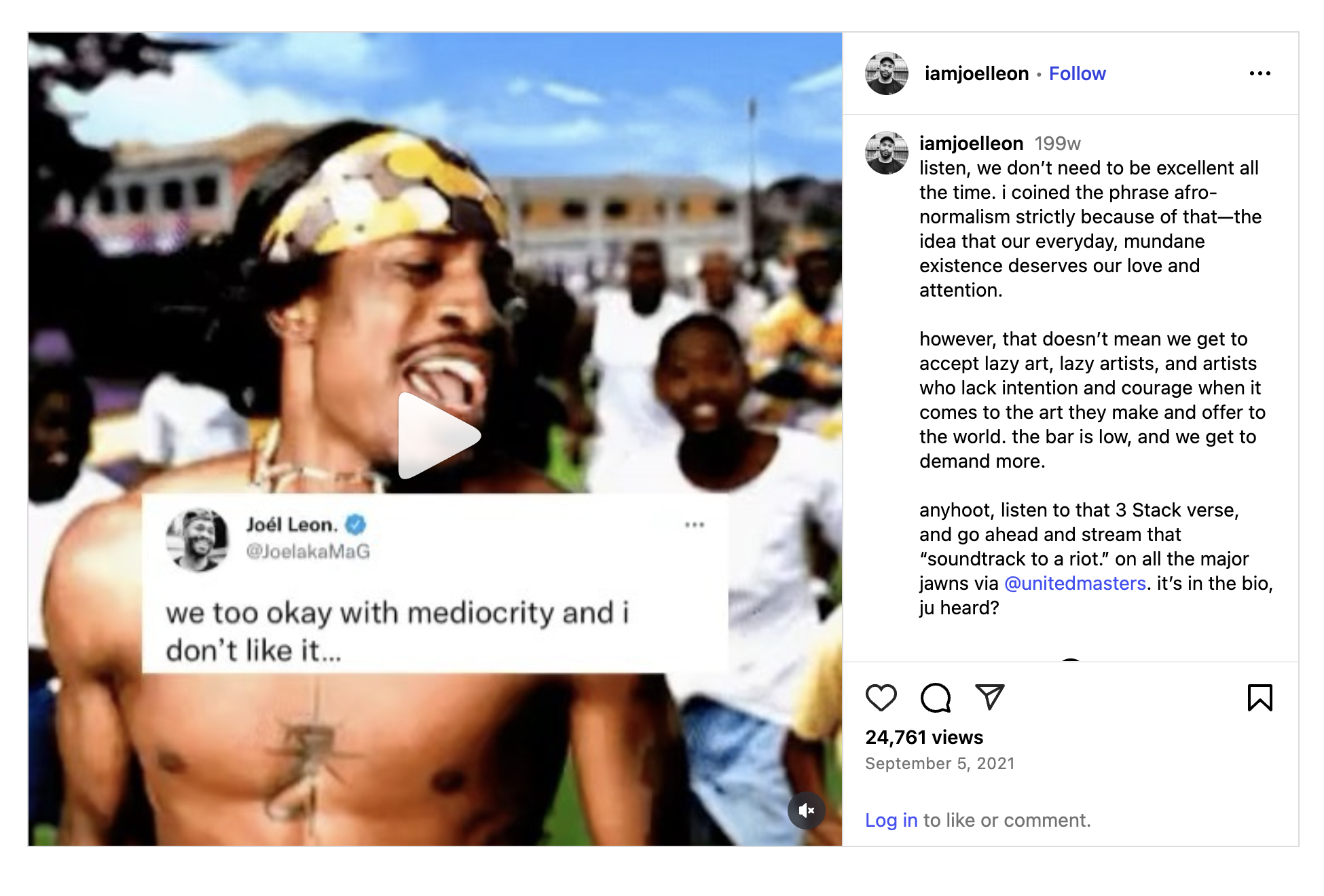
'AFRO-NORMALISM' at the End of the World
A panel discussion exploring the emerging term ‘afro-normalism’, belonging and the normative politics of representation.
This panel discussion took place at the Fitzwilliam Museum in June 2025 with Dr S.M. Rodriguez, scholar-activist and Assistant Professor of Gender, Rights and Human Rights at the LSE (Moderator), Black feminist historian Dr Jade Bentil and artist, researcher and educator Jacob V Joyce, who shared insights to critique, develop and contribute to our understanding of ‘afro-normalism’.
What is ‘Afro-Normalism’?
The title of this event is a riff on queer of colour, performance and Black studies scholar Tavia Nyong’o’s monograph, ‘Black Apocalypse: Afrofuturism at the End of the World’ (2025). Nyong’o explores how Black cultural production has been used to speculate the future by evoking the notion of the end of the world, complicating the dichotomous framing of futurity and pessimism.
Why now?
In the wake of the Black Lives Matter Movement [2020], the continual presentation of Black bodies with subordination, violence and death has been met with (counter)narratives of Blackness as ‘excellence’ (Asare, 2022). Black excellence is the celebration and exceptionalism of Black people’s achievements within and in spite of such structures systematically engineered for exclusion. However, both paradigms have been critiqued for relentlessly paralleling, unsustainable and unaffordable portrayals of Black people (ibid). As a result, Joel Leon Daniels makes the case for ‘afro-normalism’: ‘the art of capturing, depicting and celebrating Black people doing things that are considered mundane and ordinary to the general public. e.g. – Black people fishing; Black people making tea; Black people reading comics; Black people living’ (2021).
Time is a central to the functioning of colonial power and subjugation of Black life. For Schuller and Gill-Peterson (2020), Black people are marked as out of beat with modernity, stuck in the past, unmalleable to the needs of the nation and unable to be stretched forward in time. But as Jackson argues (2020), departing from this fixed notion of being, Blackness is rendered a forever shifting, sub/super/human form that contends with the Black as violence – Black as excellence equilibrium that Daniels is critical of. These paraments have led to pessimist, speculative and futurist articulations of how Black life might exist within, resist and reimagine these present conditions.
Key questions:
Considering this, what might the lens of afro-normalism offer to our understanding of time? How might it sit alongside other critiques of the normative politics of representation? What are the forms of being and belonging that afro-normalism engenders and how might these insights develop how we attend to, critique and navigate identity? To what extent is afro- normalism a speculative endeavour? Will afro-normalist present(ed)-futures ever arrive?
The panel discussion explored some of these questions to further our understanding of afro- normalism as it intersects with time, identity and belonging. The event sits within critical research from postcolonial, gender and queer studies, and will be of interest to anyone committed to understanding how we navigate the temporal politics of representation.

References:
Tavia Nyong’o – ‘Black Apocalypse: Afrofuturism at the End of the World‘ (2025)
Janice Gassam Asare – ‘Our Obsession With Black Excellence is Harming Black People‘ (2022)
Joél Leon – ‘Listen, we don’t need to be excellent all the time.’ (2021) and ‘Everything and Nothing at Once: A Black Man’s Reimagined Soundtrack for the Future‘. (2024).
Kyla Schuller; Jules Gilles-Peterson – ‘Introduction: Race, State and the Malleable Body‘. (2020)
Zakiyyah Iman Jackson – ‘Becoming Human‘. (2020)
Dr S.M. Rodriguez is a scholar-activist and Assistant Professor of Gender, Rights and Human Rights at the LSE. Learn more about Dr Rodriguez’ research here.
Dr Jade Bentil is a Black feminist historian. Engage further with Dr Bentil’s work here.
Jacob V Joyce is an artist, researcher and educator. See more of Jacob’s work here.
